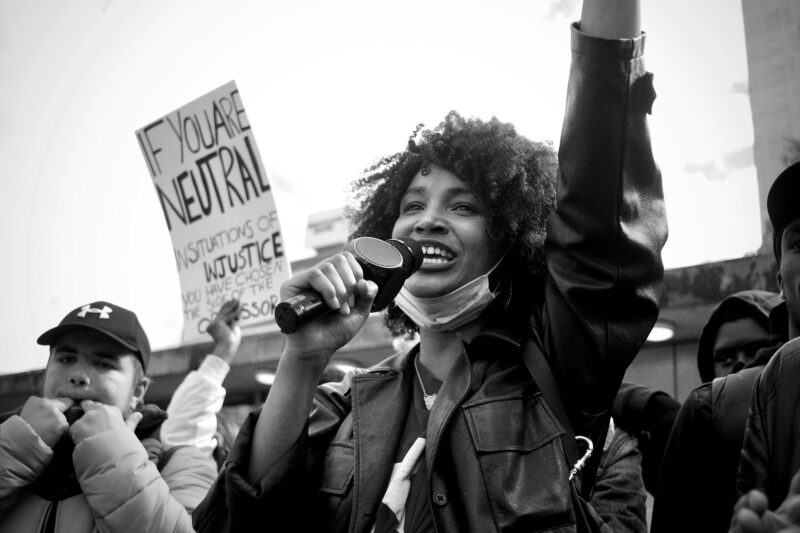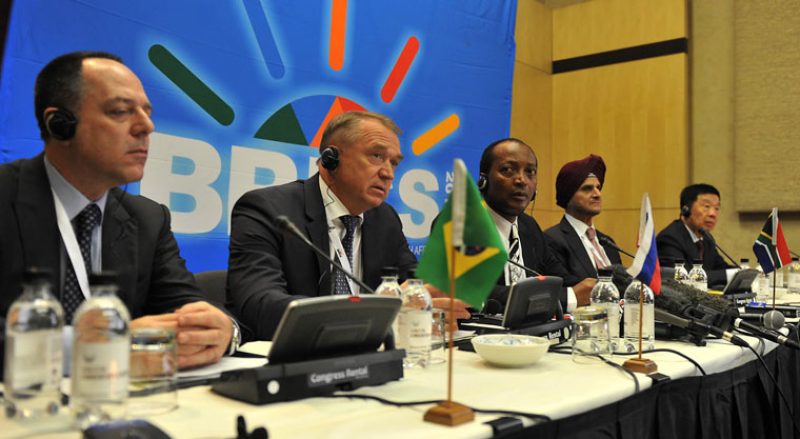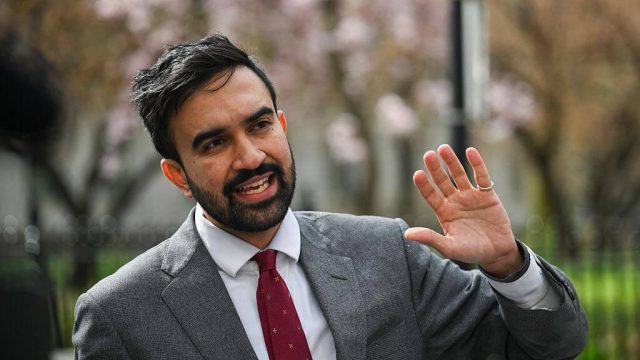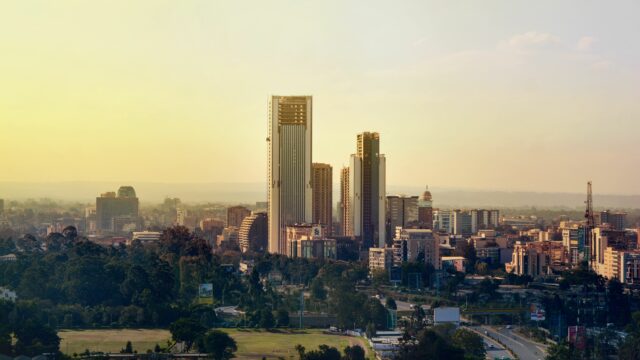Power, responsibilities and gender: perspectives from the GRAN-ESC network
How can climate negotiations explore and unpack power relationships and how they how they affect the role of women at COP?

The work of the GRAN-ESC network continues apace, connecting researchers, activists and changemakers around the world on some of the most important issues pertaining to the green and just transition. Here, we explore some of the recent perspectives shared at the GRAN Gender Justice Working Group session on power dynamics. If you’d like to get involved and join future working group calls, do visit https://www.ecosocialcontract.net/ and join the mailing list.
At our first session exploring gender and power and the implications for re-negotiating eco-social contracts, we were joined by Fernanda Alcobe, a Researcher at IIED who shared emerging findings of a new study into the challenges women face in participating in critical UN international climate talks, and Mamta Borgoyary, Director of SHE Changes Climate.
Analysis from the Women’s Environment and Development Organization (WEDO) shows that 34% of Party delegates at COP28 were women, and less than one in five Heads of Delegation (19%) was a woman. What’s worse, this marks a 1 percentage point decrease from last year’s COP27, and only a 3 percentage point increase from COP14 in 2008. At this rate gender parity is unlikely to be reached until at least 2043.
“ It’s important that those who are at the frontline of climate impacts should be present in the spaces and negotiations. But we should also push back against the narrative of women as being mere climate victims.”
UNFCCC’s report on gender show that, although women form part of the delegations, speaking time and decision-making positions are often monopolised by men, with women undertaking more administrative and event-related responsibilities than technical ones.
To better understand what is holding women’s representation back at COPs and what can be done to address this, the group are undertaking research with SAEDI Consulting, exploring the importance of specialist expertise and methodologies to understand the gender dynamics and how these appear in different countries and cultures.
Preliminary findings on barriers to female power
Social norms, especially patriarchal bias
Across many countries, norms remain that reduce women's access to resources and their ability to build their capacity to be part of the negotiations. Interviewees reported that, in countries where decisions are traditionally taken by men, it is difficult for women to step out of social traditions that restrict them to domestic roles.
Patriarchal norms encourage women to practice self-exclusion as these beliefs are internalised, causing them to question their skills and doubt their ability. We need to encourage applications to opportunities even when women feel they may not have all of the qualifications yet.
Limited finance
This is a very big barrier because attending conferences - especially COPs - is very expensive. Add up the direct costs with travel, visas, accommodation, and loss of income during the event and it starts to become prohibitively expensive, especially for women who may well be earning less in patriarchal societies. The end result is to make conferences financially viable only for more experienced, senior and better-paid staff members – who are all too often men, thus compounding the inequality. This is acerbated for LDC representatives who have an additional preparatory week. Estimates that this costs approximately for this event are $3-5000 U.S.
Countries with limited resources have fewer attendee spaces to fill, and this makes it doubly difficult for women to attend because the competition is fiercer for those spots. Another overlooked financial factor is the cost of childcare and the distribution of caring responsibilities in the home and covering these responsibilities over the period of the conference.
Selection process
To attend a COP as a negotiator, you need to be nominated by your country’s government. This means you must have seniority, authority, and political recognition – all of which are things that women have traditionally been excluded from. Furthermore, each country decides who they nominate according to their own processes, and there are no written guidelines. That makes identifying hidden bias in terms of who is considered competent to serve as a negotiator very difficult.
Even when some countries have a criteria this may not be written down, limiting the visibility and consequently the inclusiveness of the process. It also makes it hard to assess if and how bias appears in this process.
Civil society responses to this challenge
Stepping up to tackle these hidden biases in climate negotiations, She Changes Climate is a movement that champions women's presence and women's role in climate decision-making.
At Glasgow’s COP26 the campaign was established to work behind the scenes with the government to build up fairer gender representation, through advocacy campaigns, letter-writing, and creating public pressure. Mamta Borgoyary, Director of SHE Changes Climate, shared that there is a huge demand amongst women for change in the climate space and beyond, which has resulted in a global movement to promote womens leadership, with the aim of achieving a 50:50 gender split in climate negotiation leadership.
Mamta argued that it's more than women just “deserving” to be on the table, though that is true - women have a right to be at the table. Climate change doesn’t only impact half the population, so why are men only represented in the negotiations? In fact climate change disproportionally impacts women and marginalised people more than men.

For the campaign to succeed Mamta urged that different capacities, different skills, and men and women working together is needed to take forward this movement. It’s important that those who are at the frontline of climate impacts should be present in the spaces and negotiations. But we should also push back against the narrative of women as being mere climate victims - because women are also the solution providers. We need to take those voices and experiences and put that in the negotiation process.
Climate and Gender Advocacy in Practice
The Working Group explored how to ensure that women achieve more centrality and leadership roles in country delegations. Empowering and amplifying the voices of those who are at who are at the front line of climate change is key to these efforts. She Changes Climate country networks aim to promote the inclusion of women in national delegations. This platform brings together women leaders, organisations and the grassroots - which are working in silos at the intersectionality of climate and gender to support and provide these leaders more power.
Enhancing the role of women at the national level with these national focal points, who nominate and advocate for women to be involved in the decision making. Advocating also for having donors or funding available for women and for the introduction of quotas within the group or within the countries.
In addition to this youth ambassador programs are in place to connect youth voices with those who are experienced to build the capacity of young women to take their voices, their experience, their advocacy agenda into different platforms.
Studies show that when women participate in climate negotiations at the local and national level this tends to lead to more action. Women are often the most vulnerable victims of climate change but, crucially women are the answer for the climate challenges that we face.
If you’d like to get involved and join future working group calls, do visit https://www.ecosocialcontract.net/ and join the mailing list.


